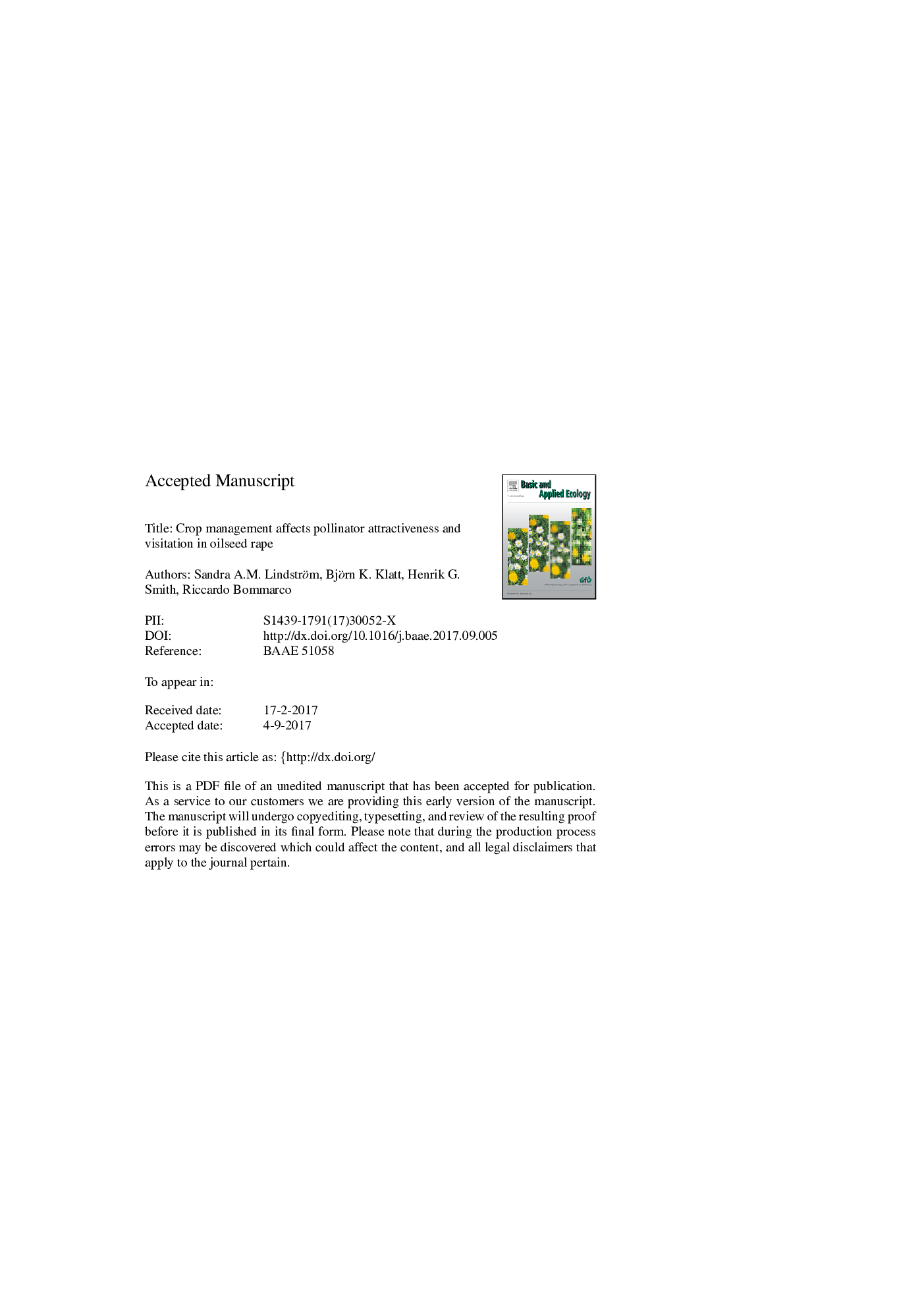| Article ID | Journal | Published Year | Pages | File Type |
|---|---|---|---|---|
| 8847046 | Basic and Applied Ecology | 2018 | 23 Pages |
Abstract
Ecological intensification of agriculture implies managing ecological processes to improve performance of agricultural systems. However, impacts on relevant ecological functions such as insect pollination from other crop management factors are poorly explored. Pest insects and crop resources such as water availability can directly affect crop yields, but it is unknown if there are indirect effects through effects on insect pollination. With a factorial experiment, we examined how irrigation and control of pollen beetles affected crop attractiveness and pollinator visitation in an open-pollinated spring oilseed rape cultivar. We studied how irrigation and pest control modified the production of flowers and nectar in oilseed rape, and if this in turn affected the flower-visitation of honey bees and bumble bees. Pest control increased the number of oilseed rape flowers by 69%, and the amount of nectar per flower with 36%, but for the latter only in non-irrigated plots. Furthermore, we found higher pollinator densities in plots with reduced pollen beetle densities. Pest control also reduced the number of non-legitimate flower visits, suggesting higher pollination efficiency in plots with reduced pollen beetle densities. We show that crop management affects the value of mass-flowering crops as a resource for pollinating insects. Development of pest control tools that are harmless to pollinators could increase the value of flowering crops as food resources for pollinating insects.
Related Topics
Life Sciences
Agricultural and Biological Sciences
Animal Science and Zoology
Authors
Sandra A.M. Lindström, Björn K. Klatt, Henrik G. Smith, Riccardo Bommarco,
